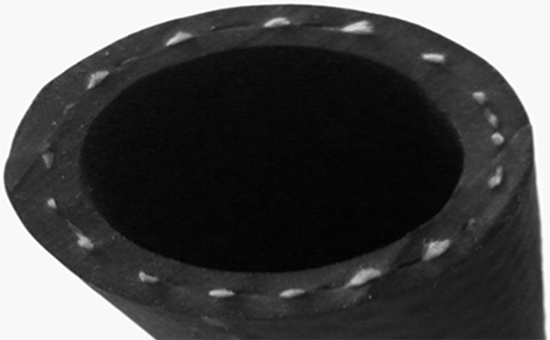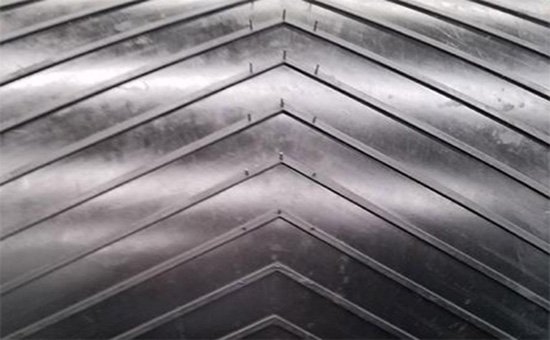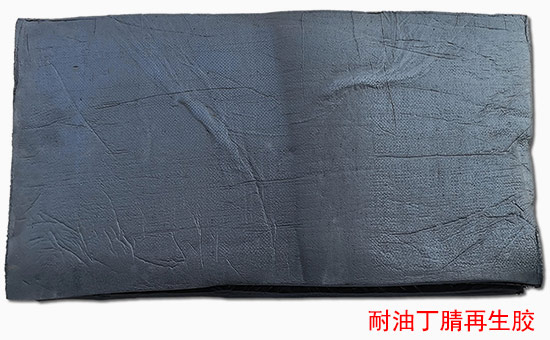When using reclaimed butadiene acrylonitrile rubber instead of butadiene acrylonitrile raw rubber in proper proportion to produce rubber products, many products need to use fibers, metals, etc. as structural materials, which need to be firmly adhered to the rubber as a whole; In the molding process, the adhesive among glue and glue, glue and cloth, glue and metal materials all need good adhesion. Among them, the additives have a great influence on the adhesion of nitrile reclaimed rubber, especially fillers, plasticizers and tackifiers. Improving the adhesion of nitrile reclaimed adhesive can avoid peeling and delamination among rubber parts or with other materials after molding or when products are used.
1. How to select filler to improve adhesive property of reclaimed butadiene acrylonitrile rubber

In the reinforcing filling system of the vulcanization formula of nitrile rubber, active reinforcing agents such as carbon black, white carbon black, etc. obviously affect the viscosity of the rubber compound, and the adhesion of the rubber compound varies with the dosage. The rubber compound with trough carbon black, medium and super wear-resistant furnace black and high wear-resistant furnace black has low adhesion; At the same dosage, semi reinforced furnace black and hot cracking carbon black compound have better adhesion. Among the white fillers, the adhesive property of the rubber filled with white carbon black is the worst, and the particles of activated calcium carbonate and clay can give the recycled rubber a better adhesive property; The combination of silica and magnesium carbonate in the formula reinforcing filling system of nitrile reclaimed rubber products can improve the adhesion of the rubber compound.
2. How to select plasticizer and tackifier to improve adhesive property of reclaimed butadiene acrylonitrile rubber

The use of plasticizer will reduce the intermolecular force of nitrile reclaimed rubber, improve the mobility and mutual diffusion of macromolecules, reduce the viscosity of rubber compound, and improve the adhesion. However, if the plasticizer 2ELYY1020 is not properly selected, it is easy to seep out of the nitrile reclaimed rubber, which will have an isolation effect on the bonding surface. In actual production, plasticisers such as Gumarone resin and liquid nitrile rubber have remarkable viscosity increasing effect; Dibutyl phthalate also has good viscosity increasing effect; Aromatic softened oil has poor compatibility with nitrile rubber, is prone to seepage, and has the worst adhesion.
To improve the adhesiveness of the reclaimed butadiene acrylonitrile rubber compound, the rubber product manufacturers can directly add the tackifier. The commonly used tackifiers include Gumarone resin, pine tar, coal tar, hydrogenated rosin, petroleum tar, liquid butadiene acrylonitrile, etc., with remarkable tackifier effect.

To improve the adhesiveness of the nitrile rubber compound with the nitrile reclaimed rubber as the main raw material, the rubber product manufacturer can also apply the nitrile rubber solution on the bonding surface of the rubber compound, which can not only remove the ejecta on the rubber compound surface, such as wax, sulfur and plasticizer, but also expand the surface of the nitrile reclaimed rubber compound, improve the mobility and diffusion ability of macromolecules, and increase the surface adhesion. Later, the editor will continue to discuss with you other methods and techniques to improve the adhesion of nitrile reclaimed adhesive.
Exclusive original article [commercial authorization] reprint, excerpt and excerpt in any form are prohibited without written authorization. Focus on Hongyun rubber: learn the process formula and raw material technology of producing rubber products from recycled rubber to help you reduce costs and increase profits